Israeli Politics
How do Israeli politics work?
Part of: Hey Alma’s Guide to the Israeli-Palestinian ConflictWhy are there so many political parties in Israel? Are all the parties Zionist? Who’s on the right, and who’s on the left? Has Benjamin Netanyahu always been in power?
The Israeli political spectrum is (surprise, surprise) complicated. But, let’s start with the basics.
Is Israel a democracy?
Israel is a liberal democracy, but does not have a written constitution. What it does have is a series of what are called Basic Laws that have a quasi-constitutional status and lay out the principles of the state.
How do Israeli politics function?
Israel operates under a proportional representation system. There are 120 seats in the Knesset, the Israeli parliament, and to get representation in the parliament, a party needs to win only 3.25% of the vote (as of 2015). Whoever gets a majority of the Knesset (61 seats) gets control of the government. However, there are a ton of political parties in Israel, and no party has ever won the 61 seats necessary for majority control. This results in something called a “fragmented legislature” — when there are a bunch of smaller parties, and no dominant one. It also allows for fringe politicians to get elected more easily.
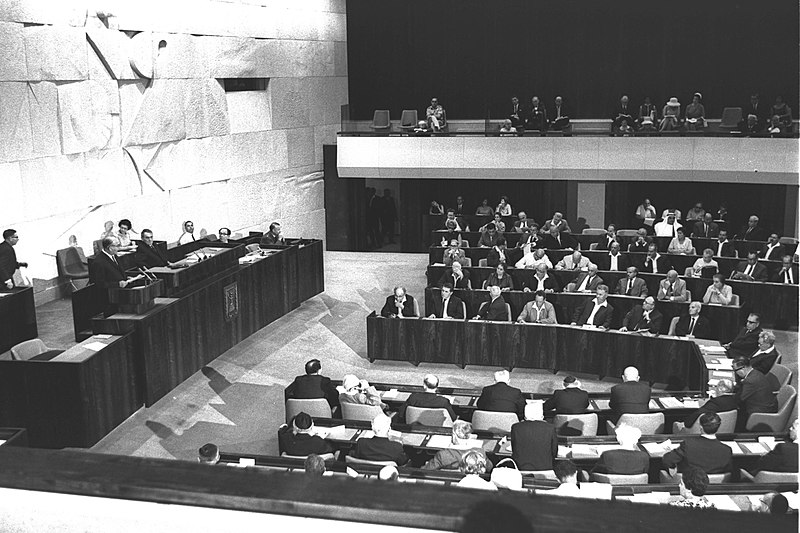
So, basically all governments in Israel are led by coalitions between several political parties. Still with us?
So have there been a ton of parties in control of Israel?
No, actually!
Only three parties have ever led Israeli governments: Mapai/Alignment/Labor, Likud, and Kadima. But really, it’s pretty much just Labor and Likud — Kadima only won a single election when its leader broke off from Likud. However, just simplifying down to two parties isn’t super accurate — unlike the U.S., Israel is not a two-party system. These just happen to be the two biggest ones, historically. Smaller groups, like the religious parties, still have a lot of influence on coalitions and policy.
And there’s been a realignment recently. Labor, which used to tower over Israeli politics, is now a minor party with just a handful of Knesset seats. The main opposition to Likud is now a centrist party called Blue and White that was founded in 2019.
What do the different parties believe?
Since 1948, politics in Israel have mostly centered on the Israeli-Arab and Israeli-Palestinian conflict; questions of security, diplomacy, and borders are all major. But the political parties also argue over the role of religion, the role of the government in the economy, and settlements. Shall we dive in?
Likud
FOUNDED 1973
IDEOLOGY: center RIGHT

Likud was formed as a secular party, combining five right-wing parties, the largest of which was Herut. (Quick explainer on Herut: In 1948, the Irgun, a Zionist paramilitary organization, was subsumed into the Israel Defense Forces. Shortly after its dissolution, Menachem Begin — the Irgun’s commander — formed the Herut (“Freedom”) Party with members of the Irgun.)
Platform:
- Greater Israel (i.e. the “whole Land of Israel”)
- Preservation of Jewish tradition & culture
- Free market economy
- In favor of settlements
- Opposes a Palestinian state
Blue and White
founded: 2019
IDEOLOGY: CENTRIST, lEANING RIGHT

Blue and White is a merger of two relatively new parties: Yesh Atid, a centrist party founded in 2012, and Israel Resilience, founded in 2018. It was formed specifically as a party that could potentially beat Likud Prime Minister Benjamin Netanyahu — though it fell short of that goal in the 2019 elections.
PLATFORM:
- Anti-corruption
- Hawkish on security
- In favor of peace negotiations
- Ambiguous on a Palestinian state
- Ending the Orthodox monopoly on Israel’s state religion
Labor
FOUNDED: 1968
IDEOLOGY: CENTER-LEFT

Labor (Avoda) was formed as the successor to the Mapai party. Mapai, or the Worker’s Party, was established in 1930, 18 years before the state of Israel. From 1930 until 1977, Mapai, and later Labor, was the most dominant political force in Israel. The first four prime ministers of Israel were from Mapai. It was also known as “Alignment” from 1969 to 1986. It’s been weaker in recent decades, and hasn’t won an election since 1999.
PLAtFORM:
- Social democratic
- Peace process / two-state solution / “land for peace”
- Social welfare
- Increases in minimum wage
- Freedom of religion
Rightist & Ultra-Orthodox Parties
- Yisrael Beitenu, which is super hawkish, revisionist Zionist, calls for loyalty tests for Israeli Arabs, and finds its base from secular, Russian-speaking Israelis.
- Right-Wing Union primarily represents Modern Orthodox Jews and supporters of the settlements. Pro-settlement, against two-state solution, supports Orthodox control of Israeli state religion, opposed to same-sex marriage. Led by Naftali Bennett until 2018.
- Kulanu is a center-right party that emphasizes liberal economic reform. It doesn’t take strong positions on the Israeli-Palestinian conflict.
- Shas is the party of Sephardi ultra-Orthodox Jews, but also tries to appeal to the larger Mizrahi (Middle Eastern Jewish) population of Israel. Supports Orthodox control of Israeli state religion, is hawkish on security and settlements, and populist on economics.
- United Torah Judaism is the ultra-Orthodox party for Ashkenazi Jews. It supports Orthodox control of Jewish ceremonies in Israel, opposes drafting ultra-Orthodox men into the army, and pushes for subsidies for Orthodox schools.
Leftist & Arab-Israeli Parties
- Meretz is a left-wing Zionist party. Emphasizes two-state solution, separation of religion and state, social justice, and environmental justice.
- Hadash-Ta’al, a largely Arab party, supports the creation of a fully independent Palestinian State and equal rights for Israeli Arabs. Hadash, one half of the party, has communist roots. It advocates for worker rights, education, and health care.
- Balad-Ra’am (founded in 1995), the Israeli-Arab party advocates for the rights of Israeli Arabs and for a Palestinian state. Ra’am’s base is Israel’s Bedouin population.
Note: In elections, often, the Arab parties will make and break coalitions with each other. In 2015, they all briefly merged together before breaking apart in 2018.
So, who has been in charge of Israel?
A grand total of 12 people! Shall we run through them?
David Ben-Gurion
1948 — 1954 / Mapai
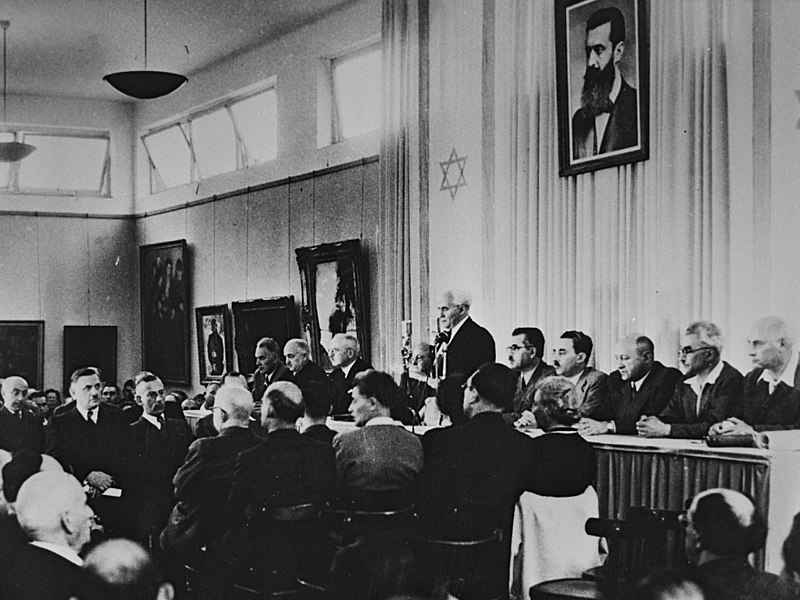
Ben-Gurion is considered the founder of the State of Israel — he proclaimed the establishment of the state on May 14, 1948, led Israel in its war for independence, and helped thousands of Jews make aliyah to the newborn state. One notable thing he did during his Prime Ministership was make a deal with the West German government for reparations, which helped establish Israel’s economy.
Moshe Sharett
1954 — 1955 / MAPAI
Succeeded Ben-Gurion after he retired from politics (which ended up being temporary), but resigned because of the Lavon Affair.
Ben-Gurion (again)
1955 — 1963 / MAPAI
He un-retired from political life and oversaw Israel during the Suez Crisis. He re-retired from political office in 1970, living on a kibbutz in the Negev called Sde Boker until he passed away three years later.
Levi Eshkol
1963 — 1969 / MAPAI, ALIGNMENT
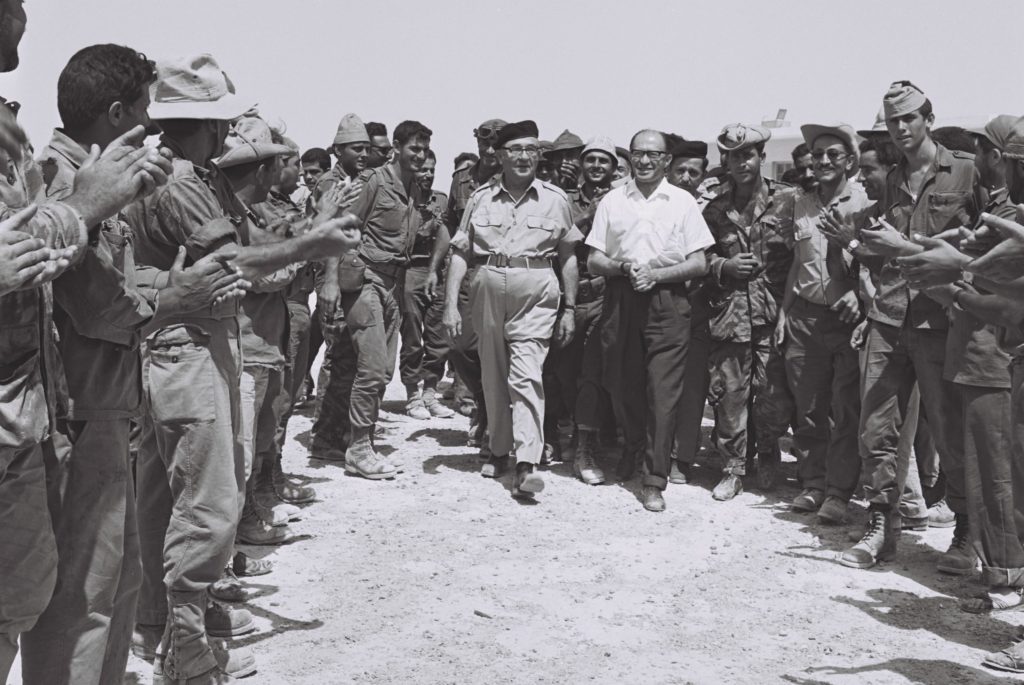
Eshkol was the first Israeli leader invited to the White House, and he led the government during the Six-Day War. He died in office from a heart attack.
Yigal Allon (acting)
1969
Prime Minister for 19 days! Mainly known for his role in the military.
Golda Meir
1969 — 1974 / ALIGNMENT
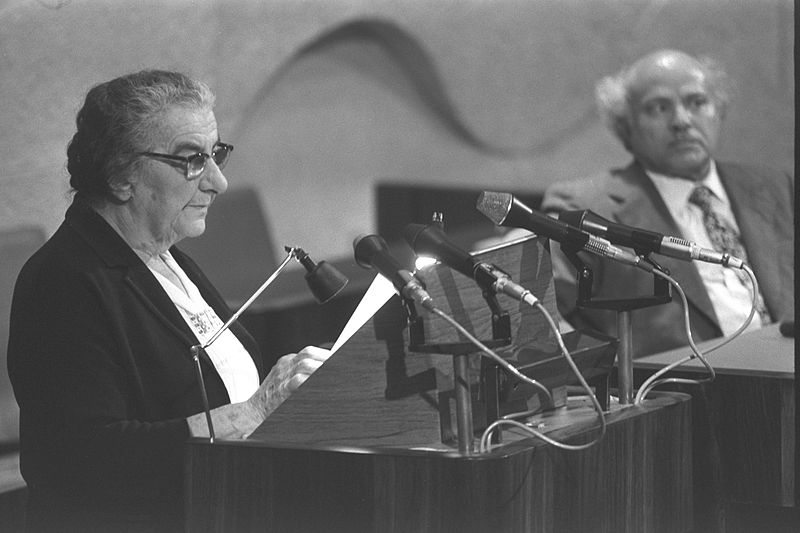
The world’s fourth woman to be elected head of state, Meir transformed Mapai into the Alignment, winning 56 seats in the 1969 elections (the closest any party has come to winning the majority 61). She was PM during the Munich Olympics and the Yom Kippur War; she resigned following the latter.
Yitzhak Rabin
1974 — 1977 / ALIGNMENT
Rabin transitioned from ambassador to the U.S. to Prime Minister after Meir stepped down, then resigning in 1977 in the wake of a financial scandal. His second term is more important (hint: peace process).
Shimon Peres (briefly, acting)
1977
Menachem Begin
1977 — 1983 / LIKUD
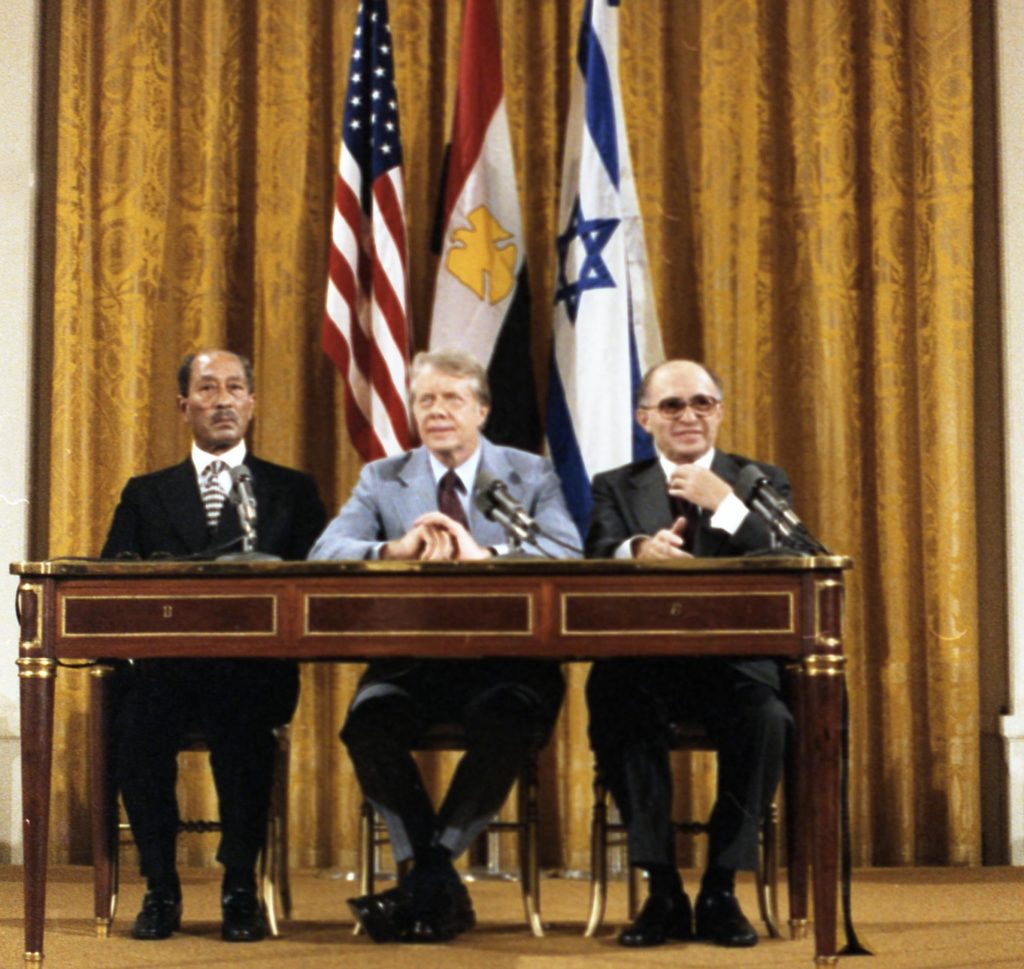
Begin came to power in something called the “Upheaval,” when right-wing parties won a majority for the first time. He was the commander of the Irgun in Mandatory Palestine. He signed the Camp David Accords in 1979 and oversaw Israel’s withdraw from the Sinai as well as the bombing of Iraq’s nuclear reactor in 1981 and Israel’s invasion of Lebanon in 1982. He resigned in 1983 following the death of his wife.
Yitzhak Shamir
1983 — 1984 / LIKUD
Shamir, like Begin, was the leader of a paramilitary group in Mandatory Palestine. He served in the Mossad after Israel’s founding. He was known as a “hard-liner.”
Shimon Peres
1984 — 1986 / Aligment, labor
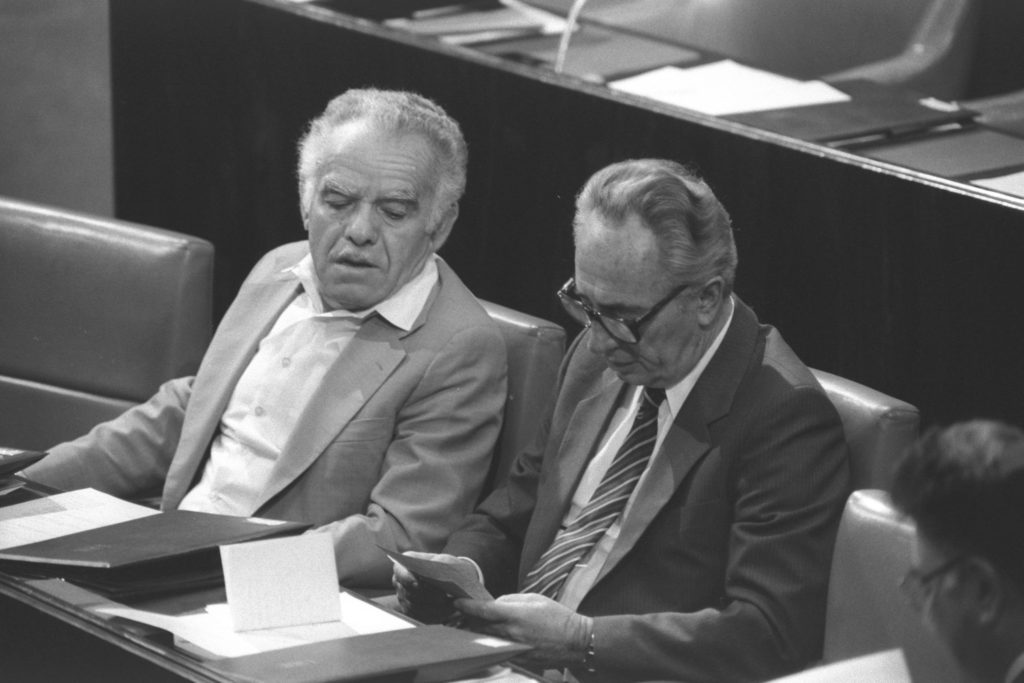
In the 1984 elections, Labor and Likud agreed to a unity election — Peres would be PM, Shamir would be Foreign Minister, then they would swap. Peres oversaw Ethiopian Jewish immigration to Israel.
Shamir (again)
1986 — 1992 / LIKUD
Oversaw a wave of Soviet Jewish and (more) Ethiopian Jewish immigration; established diplomatic relations with numerous countries; opposed the Madrid Peace Talks.
Rabin (again)
1992 — 1995 / LABOR
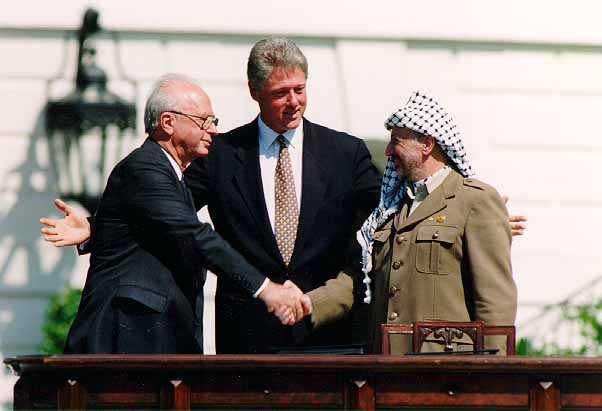
In this term Rabin emphasized the Israeli-Palestinian peace process. As PM, he signed the historic Oslo Accords and won the Nobel Peace Prize alongside Peres and Yasser Arafat. He was assassinated by a right-wing extremist in 1995 for signing the accords.
Peres (again)
1995 — 1996 / LABOR
After Rabin’s assassination, he served as acting Prime Minister until he called early elections hoping to maintain the peace process momentum. He was voted out. He held the position of president from 2007 to 2014, largely ceremonial.
Benjamin Netanyahu
1996 — 1999 / LIKUD
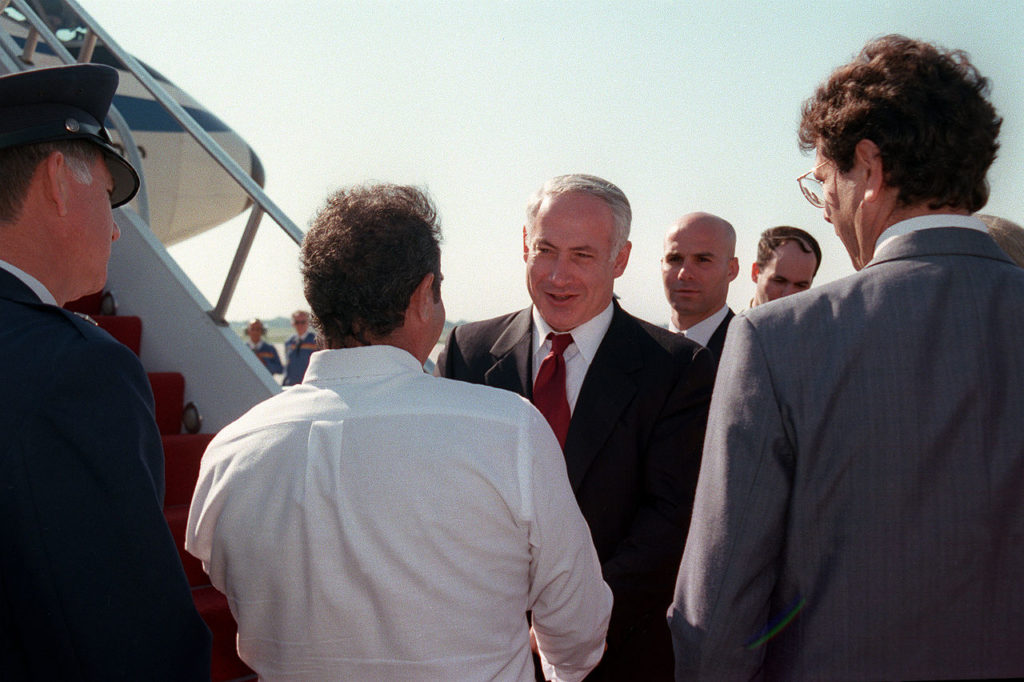
Benjamin Netanyahu, also known as Bibi, became Israel’s youngest-ever Prime Minister, defeating Peres and coming to power on a position of being tough on security. He slowed down, but did not stop, the peace process.
Ehud Barak
1999 — 2001 / LABOR
Campaigned on ending Israeli occupation of Southern Lebanon, resuming peace negotiations (Camp David 2000 summit, which failed). Second Intifada broke out in fall 2000; deadly suicide bombings swept through Israel. Barak resigned, and new elections were held in 2001.
Ariel Sharon
2001 — 2006 / LIKUD, KADIMA
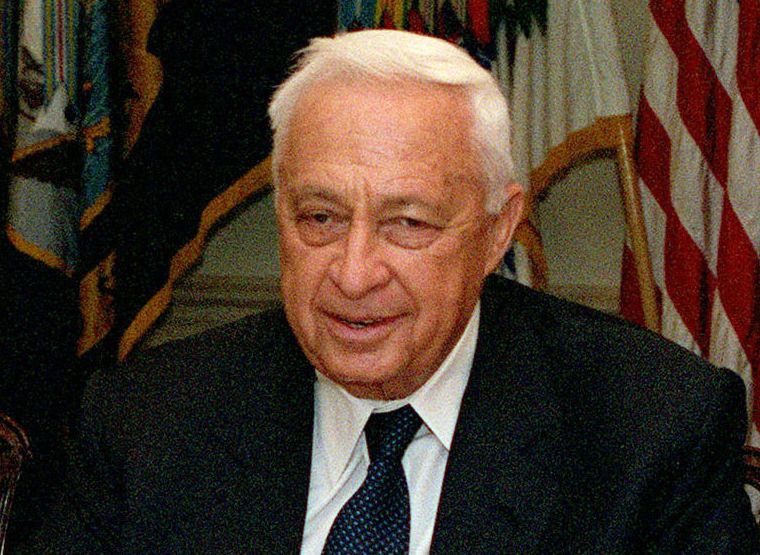
Came to power during Second Intifada on promises of security and an uncompromising line against Palestinian terror. Sharon spearheaded unilateral withdrawal from Gaza. Left office after a stroke in 2006.
Ehud Olmert
2006 — 2009 / KADIMA
Oversaw the 2006 Lebanon War (his popularity plummeted) and reignited peace talks in 2007 and 2008, which failed. Oversaw the 2008-2009 Gaza war. Stepped down as head of Kadima in 2008, was indicted for bribery, and eventually sentenced to eight months in prison.
Netanyahu (again)
2009 — PRESENT / LIKUD
Bibi, in his latest tenure, has ended up prime minister four elections in a row. Over time, he’s come to oppose a Palestinian state, and has waged two wars against the Hamas militant group in Gaza (2012 and 2014). He also favors privatizing Israel’s economy.
Suez Crisis
The Suez Crisis refers to the invasion by Israel of Egypt in 1956, in coordination with France and England.
Israel Defense Forces
The Israel Defense Forces, commonly referred to as the IDF, is Israel’s military.
Hamas
Hamas is a militant Islamic organization that engages in both acts of terrorism against Israel and serves various social welfare functions. Founded as an offshoot of Egypt’s Muslim Brotherhood, Hamas became the governing authority in the Gaza Strip in 2007.
Second Intifada
The Second Intifada was a period of Israeli-Palestinian violence sparked by the visit of Ariel Sharon to the Temple Mount in Jerusalem in 2000.
Oslo Accords
The Oslo Accords were a series of agreements signed by Israel and the Palestine Liberation Organization aimed at achieving a peace treaty between the sides and a final resolution of the conflict.
Madrid Peace Talks
The Madrid Peace Talks were a multilateral peace conference held in Spain in 1991 that sought to resolve the Arab-Israeli dispute.
Mossad
The Mossad is Israel’s national intelligence ageny.
Camp David Accords
The Camp David Accords were a 1978 agreement between Egypt and Israel, negotiated under the auspices of U.S. President Jimmy Carter, which paved the pay for an Egyptian-Israeli peace treaty the following year, the first such agreement between Israel and an Arab state.
Six-Day War
The Six-Day War was a war between Israel and multiple Arab states in 1967 that resulted in Israel vastly expanding the territory under its control, including the disputed territories of the West Bank and Gaza Strip.
Yasser Arafat
Yasser Arafat was the chairman of the Palestine Liberation Organization and, following the Oslo Accords, the president of the Palestinian Authority. He died in 2004.
Knesset
The Knesset is Israel’s parliament.
Yom Kippur War
The Yom Kippur War was a 1973 conflict fought between Israel and a coalition of Arab states. It began with a surprise Arab attack on the Jewish Day of Atonement.
David Ben-Gurion
David Ben-Gurion was the first prime minister of the State of Israel.
Mandatory Palestine
Mandatory Palestine is how the territory that today is made up of Israel, the West Bank and the Gaza Strip was referred to when it was under the control of British authorities in the 1920s.
Gaza
The Gaza Strip is a coastal territory bordered by Israel, Egypt and the Mediterranean Sea. The strip was occupied by Israel following the 1967 war and returned to Palestinian control in 2005.